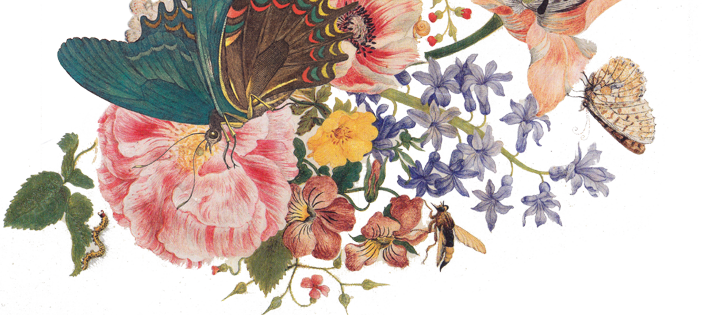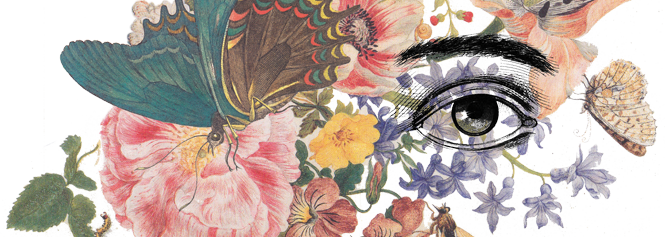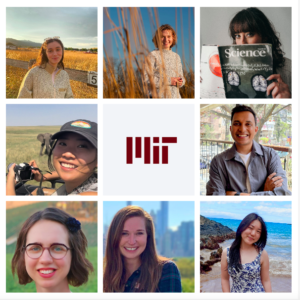
The GPSW Announces the Class of 2025
After the GPSW’s most highly competitive admissions season yet, we’re proud to announce our Class of 2025. Our incoming students hail from a broad spectrum of geographical, academic, and professional backgrounds, and bring an enormous range of skills and experiences. We are thrilled to welcome these students to our campus this coming fall:
Sarah R. Akaaboune attended the University of Michigan, where she studied neuroscience and English. She studied the impacts of Golgi fragmentation on lysosomal protein biogenesis, and served as a writer and editor for her student newspaper, The Michigan Daily; a community leadership fellow at her local health department; and a student correspondent for Teen Vogue, where she covered the 2024 presidential election cycle in Michigan.
Anika Jane Beamer has spent years researching and thinking about life’s little guys—viruses, bacteria, and fungi. As a science writer for Grinnell College, she shared stories about research, faculty, and students in fields as far-flung as robotics, galaxy formation, water geochemistry, and lung cancer.
Jessica Chomik-Morales holds an undergraduate degree in neuroscience and currently works in a cognitive neuroscience lab at MIT, where she uses fMRI to explore abstract thought in humans. She hosts and produces Mi Última Neurona, a neuroscience podcast in Spanish that aims to ignite curiosity, spark conversations, and empower her community.
Nanticha Ocharoenchai, or Lyn, graduated from Chulalongkorn University with a degree in communications. Lyn organized what grew into Thailand’s first youth climate movement and has written and produced short films for WWF, Greenpeace, Mongabay, The Pulitzer Center, and more, covering topics from wildlife conservation to Indigenous knowledge and land rights.
Pratik Pawar is a science journalist who covers stories about global health, medicine, and science policy. He is particularly interested in covering neglected health issues in the Global South and in understanding the role of inequity and socio-political realities in furthering health crises. His work has been published in The Atlantic, Nature, Science, and Undark, among other outlets.
Paula Rowińska is the author of Mapmatics: A Mathematician’s Guide to Navigating the World, a popular science book about the mathematics of maps. She earned a Ph.D. in mathematics and statistics at Imperial College London and creates interactive math and data science content for Brilliant, an educational company.
Mackenzie White earned a Ph.D. in geophysics, specializing in temperatures on the Moon and Mars. During graduate school, she worked on NASA missions, which fueled her enthusiasm for sharing discoveries with the public. She has contributed to outlets like Google Arts & Culture and Eos and was a 2022 AAAS Mass Media Fellow at Science Friday.
Celina Zhao is pumped to be staying in Cambridge for another year after studying writing and biology as an undergraduate at MIT. Her work with Science, NOVA, and Cell Press has led her to explore scientific topics ranging from telescope cyberattacks to controversial fossils to microbes that travel through wildfire smoke.
Longer bios of our incoming students are available here. Welcome Class of 2025!
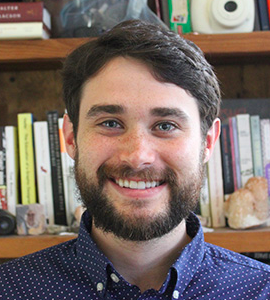
Joshua Sokol, ’15, Signs Book Deal With Random House
Congratulations to Joshua Sokol, ’15, who recently inked his first book deal with Random House. Starry Nights at the End of the World will be “an exploration of humanity’s millennia-long relationship with the stars—encompassing the origins of religion, culture, math, myth, and science—the visceral importance of the stars for all, and how its loss to light pollution and satellites amounts to an environmental crisis hiding in plain sight,” according to Publishers Marketplace. No publication date has been announced.
Joshua has long covered issues around astronomy and the history of the night sky for publications including The New York Times, Science, National Geographic, Quanta Magazine, and many more outlets. A former data analyst for the Hubble Space Telescope, Joshua pivoted to science journalism in 2015 and has since scooped up numerous accolades, including the Jonathan Eberhart Planetary Sciences Journalism Award, the Evert Clark/Seth Payne Award for science journalists under 30, the American Geophysical Union Walter Sullivan Award for Excellence in Science Journalism, and the David N. Schramm Prize from the American Astronomical Society’s High-Energy Astrophysics Division.
We can’t wait to read the upcoming book.
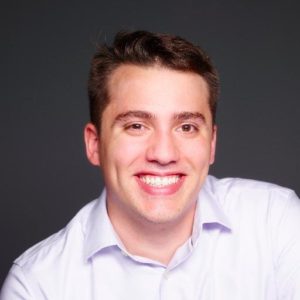
Michael Greshko, ’15, Wins a National Arts & Entertainment Journalism Award
It’s unusual for a science journalist to win an award that’s typically reserved for entertainment reporters, but Michael Greshko, ’15, has done it. Michael recently won a 2023 National Entertainment Journalism Award from the Los Angeles Press Club, an accolade that honors work by entertainment reporters, editors, and critics based in the US.
Michael scoops up the award alongside Nina Strochlic for their piece “How Does a Magician Trick Other Magicians? We Went to Find Out,” a feature published last April in National Geographic that gives readers a glimpse into the World Championship of Magic. Winning in the Arts/Entertainment Feature, Online category, the story showcases both the ingenuity and craftsmanship behind top-level competitive magicians and highlights the training and drive required to make techniques appear effortless.
When he’s not following magicians across the world, Michael pens stories for publications including The New York Times, Science, Quanta Magazine, The Washington Post, and Atlas Obscura, where he writes the “Fossiliferous” column. Previously, he was a staff writer at National Geographic.
Congratulations to Michael and Nina!
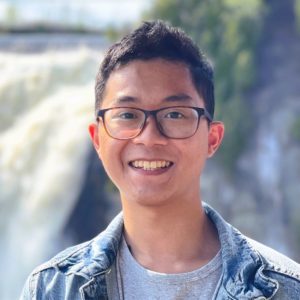
Alex Ip, ’24, Recognized for The Xylom
Alex Ip, ’24, is nabbing honors before he graduates. In addition to being a GPSW student, Alex is also the founder and editor-in-chief of The Xylom, a Gen-Z-led newsroom that focuses on communities that influence and are shaped by science. Alex was recently named a finalist for the Good Trouble Honors, which recognizes leaders who take risks and create positive disruptions to bolster social and economic well-being in Atlanta, Georgia. Alex was a finalist for the Transparency Award, which is given to individuals or organizations that make information understandable and accessible to local communities.
The Xylom is scooping up accolades as well. The publication was a finalist for the 2023 Anthem Awards, which honor work that makes a substantial social impact, in the Sustainability, Environment, and Climate category. The Xylom and Alex are also being praised by journalists. The publication recently got a shout-out in The New York Times for their coverage of false claims made by the City of Atlanta about the environmental impact of a new training center for law enforcement, and in Science Friday and NiemanLab in stories about the future of science journalism.
The recognition is much deserved. Congratulations Alex and to everyone at The Xylom.
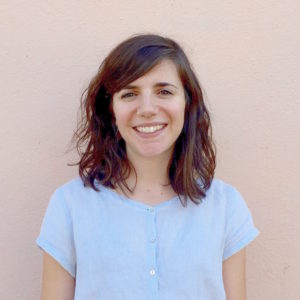
Emily Pontecorvo, ’19, Wins a SEAL Environmental Journalism Award
Congratulations to Emily Pontecorvo, ’19, for winning a SEAL Environmental Journalism Award, an accolade that honors reporting that elevates public discourse around climate and environmental issues. Selected based on the quality, impact, and reach of each candidate’s work, with special consideration towards projects that shine a light on underrepresented voices and social issues, the 2023 SEAL Awards honored twelve journalists who report for a broad spectrum of large and small publications worldwide.
Emily is a founding staff writer at the climate news outlet Heatmap, where she covers climate science and policy. Previously, she was a staff writer at Grist, where she covered decarbonization. Congratulations, Emily!
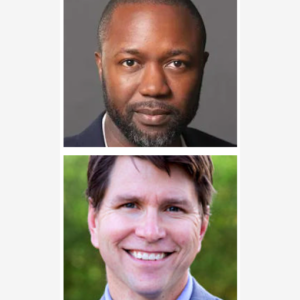
Ashley Smart and Stephen Ornes, ’06, Win AAAS Kavli Science Journalism Awards
Congratulations to Ashley Smart of Undark and Stephen Ornes, ’06, for winning 2023 AAAS Kavli Science Journalism Awards. Ashley, a senior editor at Undark and an instructor who teaches opinion writing in the MIT Graduate Program in Science Journalism, won a Gold Award in the Science Reporting, In-Depth category for “A Field at a Crossroads: Genetics and Racial Mythmaking,” a feature that explores how geneticists weigh the risks and consequences of their work against a broader backdrop of scientific racism.
“Smart has marshaled the history of science to frame how deeply racialist misconceptions remain embedded in contemporary medical and public health research, especially through genome-wide association studies,” Robert Lee Hotz, science journalist and president of the Alicia Patterson Foundation, said in a press release. “This is science that unsettles scientists, even those who are pioneering it.”
The piece is part of “Long Division,” a much bigger journalistic project at Undark that explores the history of race science and efforts to dismantle it. The project, helmed by Ashley and Angela Saini, who teaches race and equity within the GPSW, won a 2023 Salute to Excellence Award from the National Association of Black Journalists, was a finalist for a 2023 National Magazine Award, and won an Online Journalism Award in the Topical Reporting: Race, Ethnicity, Gender, and Identity category.
Stephen Ornes, ’06, also added another AAAS Kavli Science Journalism Award to his collection. Stephen won a Silver Award in the Children’s Science News category for “Some ecologists value parasites ― and now want a plan to save them,” a story published in Science News Explores that covers parasites that are on the verge of extinction and why some scientists are on a mission to save them.
The piece is “an enthralling peek into the world of parasites, a counter-intuitive glimpse into how scientists investigate the natural world,” said Dan Vergano, senior opinion editor at Scientific American.
Stephen has won AAAS Kavli awards twice before in 2021 and 2015, both times in the Children’s Science News category.
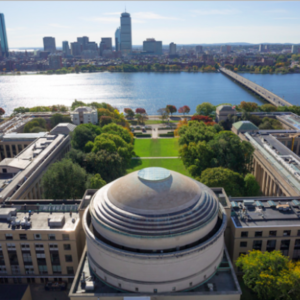
Attend Our 2023 Admissions Information Webinar
Interested in applying to the MIT Graduate Program in Science Writing? Join us for our fall admissions information webinar. Faculty and staff will give an overview of the curriculum, financial aid, and admissions procedures, and will answer questions from viewers. Details for the event are here:
The MIT Graduate Program in Science Writing Information Webinar
Friday, November 17 at 3pm.
RSVP Link: https://mit.zoom.us/webinar/register/WN_aMg_uZA9Sx-LN1fPMJny6g
Event Link: https://mit.zoom.us/j/94631254915
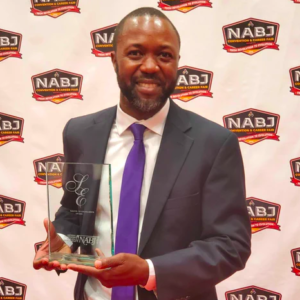
Ashley Smart, Angela Saini, and the Staff of Undark Win a 2023 NABJ Salute to Excellence Award
Congratulations to the staff of Undark for winning a 2023 Salute to Excellence Award from the National Association of Black Journalists (NABJ). One of two winners in the “Digital Media – Online Project: Feature” category, the Undark staff scooped up the honor for their multi-part series “Long Division: The Persistence of Race Science,” which explores the dark history of race science and efforts to dismantle it.
Ashley Smart, a senior editor at Undark who teaches interviewing and opinion writing within the GPSW, and Angela Saini, who has authored four books on race and gender equity and will teach the new race equity module in the GPSW this coming academic year, served as editorial directors on the project.
This isn’t the first recognition for Long Division. In addition to winning a Salute to Excellence Award, the series was also a finalist for a 2023 National Magazine Award and is currently a finalist in two categories for the Online Journalism Awards.
You can read the entire Long Division series here. Congratulations again to Ashley, Angela, and the Undark team.
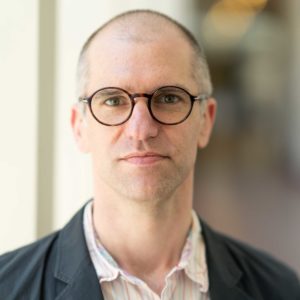
The Huffington Post Interviews Seth Mnookin About Vaccine Misinformation
When Seth Mnookin, Director of the MIT Graduate Program in Science Writing, published his book The Panic Virus in 2011, he couldn’t have imagined that Robert F. Kennedy, Jr.—an anti-vaccine activist Mnookin devoted an entire chapter to in his book—would be running for President more than a decade later. The Panic Virus explores the roots and mechanisms of the anti-vaccine movement as well as the media personalities and activists, RFK, Jr. among them, who perpetuate it.
Twelve years after The Panic Virus hit shelves, RFK, Jr. is currently campaigning for the 2024 Democratic presidential nomination and polling at roughly 15 percent. In an interview with The Huffington Post, Mnookin spoke about how the landscape of vaccine misinformation, and media coverage of it, has changed since 2011, and why it’s impossible to debate people acting in bad faith.
“The American media has still not figured out how to responsibly cover someone with really dangerous views,” Mnookin said. “…there’s a pretty well-established body of research showing that all you need to do is say something for a certain percentage of people to come away thinking that it’s true. It becomes a real problem when you have fringe characters who then figure out that, ‘Oh, I can get attention for these views just by announcing that I’m going to throw my hat into the political ring.’ It’s a dangerous combination.”
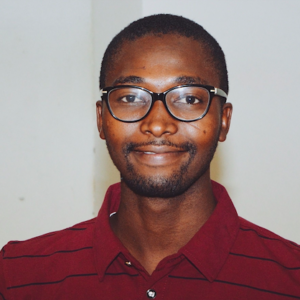
Abdullahi Tsanni, ’23, Wins an NASW Summer Fellowship
Congratulations to Abdullahi Tsanni, ’23, for winning a 2023 Diversity Summer Fellowship from the National Association of Science Writers. Awarded to students and early-career science communicators, the fellowships are designed to supplement any income students receive from summer internships. Abdullahi will be covering biomedical research, equity, and global health issues this summer as a reporting intern for STAT. His internship builds on years of previous experience covering those topics in a freelance capacity for publications including Nature, British Medical Journal (BMJ), and Popular Science. NASW Diversity Summer Fellowships come with a $3,000 stipend to support living expenses throughout the internship, as well as a one-year membership to the National Association of Science Writers, where fellows can access job and mentorship opportunities. Congratulations to Abdullahi and the rest of the 2023 fellows.
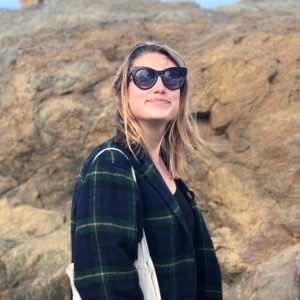
Emma Foehringer Merchant, ’22, Wins an IJNR Reporting Grant
Congratulations to Emma Foehringer Merchant, ’22, for winning a Mary G. Hager Memorial Grant from the Institute for Journalism and Natural Resources. The grant, worth up to $1,000, is awarded to early-career female journalists for projects that focus on the public health impacts of environmental issues. Emma’s project will focus on how California wildfires, driven and exacerbated by climate change, have led to increasing power outages within some communities.
Emma has long covered climate change and the energy sector for publications including the Washington Post, Inside Climate News, Canary Media, Greentech Media, and the GBH News Center for Investigative Reporting, among other outlets. Her MIT thesis focused on programs that use incarcerated labor to fight fires throughout the United States. We’re thrilled to see her latest project once it’s published. Congratulations, Emma!
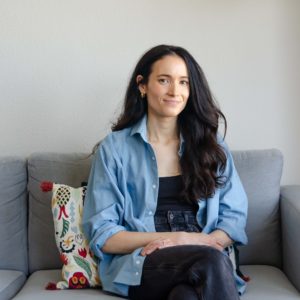
Sarah Hopkins, ’24, Wins a Taylor/Blakeslee Graduate Fellowship
Congratulations to Sarah Hopkins, ’24, for being one of seven science writers selected for a Taylor/Blakeslee Graduate Fellowship from the Council for the Advancement of Science Writing (CASW). Dedicated to defraying the cost of graduate education in the United States, the fellowships provide journalism students with $6,000 for the 2023-24 academic year.
Sarah will come to MIT this fall with a master’s degree in literature from the University of Oxford and a bachelor’s in liberal arts from Sarah Lawrence College. She has worked as a writer, editor, and communicator for social justice organizations, including the ACLU, where she translated complex legal concepts to non-expert audiences and to the media. In a CASW press release, Sarah stated that she plans to report on the intersection of law and science.
“As our lives become increasingly entangled with science and technology, the law will increasingly have to intervene to answer fundamental questions about boundaries and regulations for scientific advancements (or intrusions, depending on the implications, and on the point of view),” she wrote in her CASW application.
Congratulations, Sarah!



